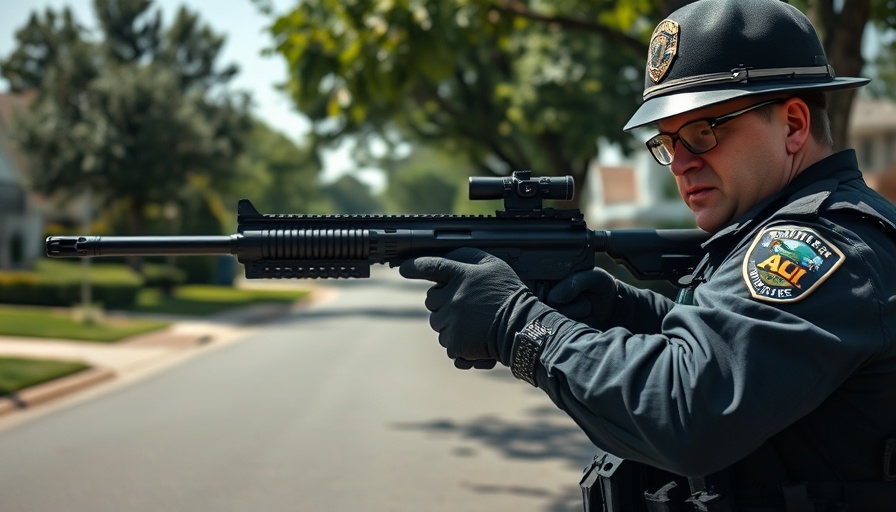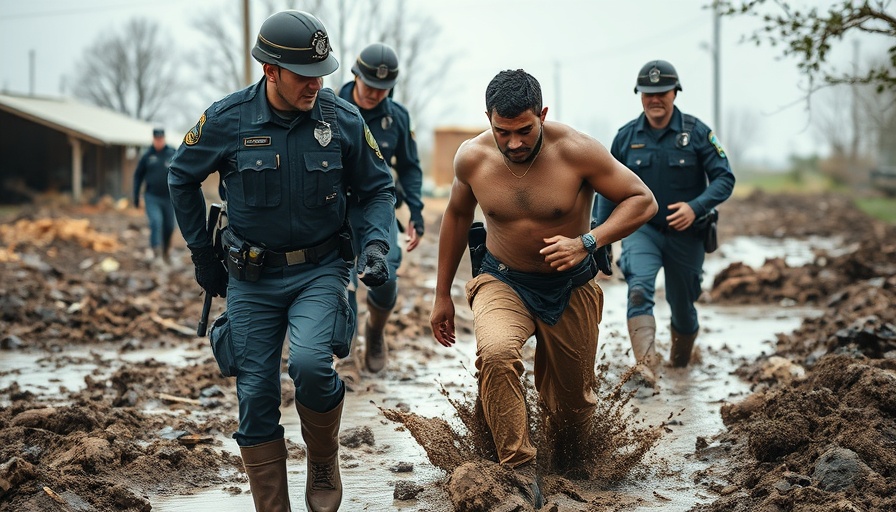
Understanding the Issues Surrounding Police Use of Force
The tragic incident involving a Florida deputy and Michael Lee Wright raises serious questions about the factors leading to deadly confrontations between law enforcement and citizens. The shooting on May 4, 2025, occurred during a domestic dispute where Wright, described as highly agitated, confronted the deputy wielding a pair of scissors. According to reports, he had displayed erratic behavior earlier that week, culminating in an overdose and aggressive behavior towards his girlfriend. These circumstances underscore the complexities law enforcement faces when responding to domestic disputes.
An In-Depth Look at Officer Response Protocol
This situation sheds light on the protocols law enforcement agencies employ in handling such volatile scenarios. Officers like Patrick Burke, who navigated the delicate balance of protecting the community while ensuring personal safety, rely on established protocols designed to de-escalate conflict without resorting to lethal force. However, as seen in this incident, outcomes can vary significantly based on the suspect's behavior and mental state. This incident will contribute to ongoing discussions around police training and the effectiveness of current de-escalation techniques.
The Role of Mental Health in Law Enforcement Encounters
The ramifications of mental health on police interactions cannot be overstated. Incidents like Wright's often involve individuals grappling with untreated mental health issues. The Jacksonville Sheriff's Office indicated that Wright had exhibited concerning behavior leading up to the incident, including substance abuse and aggression. Mental health training for officers is becoming increasingly critical as communities recognize the importance of addressing psychological factors in crisis situations. Proper training in recognizing and responding to mental health crises can greatly affect the outcome of such dangerous encounters.
Community Relations and Trust in Law Enforcement
Incidents resulting in officer-involved shootings can severely undermine community trust and relationships. As various stakeholders, including law enforcement leaders and policymakers, analyze the situation, they must consider how these events impact community relations. The necessity for transparency during investigations, as indicated by the dual investigations launched by the State Attorney’s Office and the Jacksonville Sheriff’s Office, is paramount. Communities often demand accountability in such events, and the results of these investigations will be pivotal in rebuilding trust.
Future Implications for Police Training and Policy
The aftermath of this incident will likely serve as a catalyst for re-evaluating police training programs, focusing on mental health awareness and de-escalation tactics. Law enforcement agencies across the country may draw lessons from this case to enhance their response to domestic disputes and similar situations. Effective police training is essential not only for officer safety but is also critical in ensuring public safety and community interactions during tense times.
Conclusion: The Need for Action and Reflection
The Jacksonville shooting exemplifies the urgent need for heightened training, improved understanding of mental health issues, and strategies to foster community trust. Policymakers, law enforcement officials, and community leaders must collaborate to find solutions that prioritize accountability and transparency while ensuring the safety of both officers and citizens.
As discussions surrounding police accountability and reform intensify, it is crucial for stakeholders to reflect on incidents like Wright's. The implications of this tragedy ripple throughout the community, influencing perceptions of law enforcement and shaping future policies aimed at reducing similar occurrences.Engagement with community members, mental health professionals, and law enforcement experts can pave the way forward towards a more just and responsive policing system.
 Add Row
Add Row  Add
Add 

 Add Element
Add Element  Add Row
Add Row 




Write A Comment